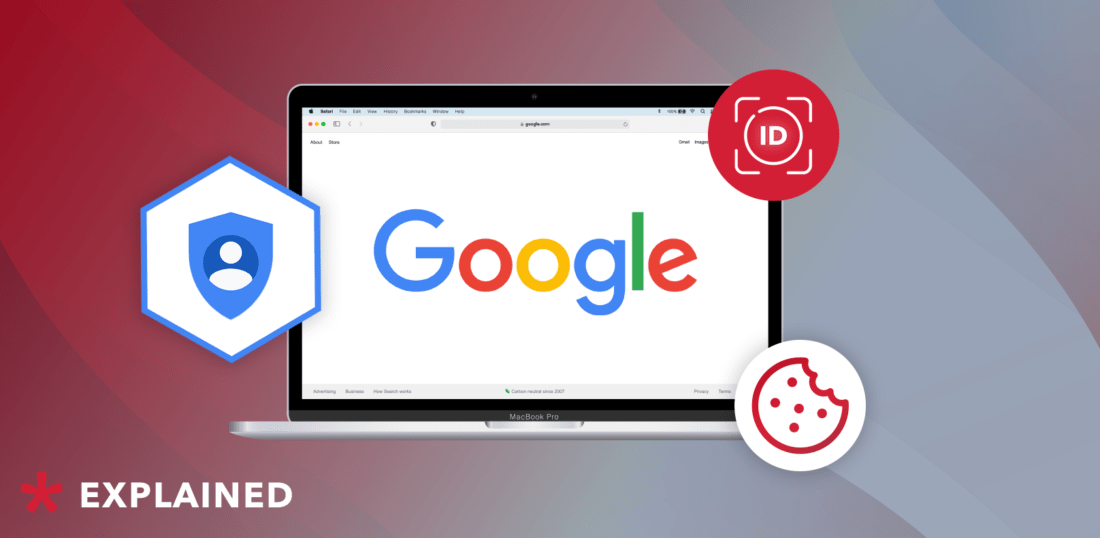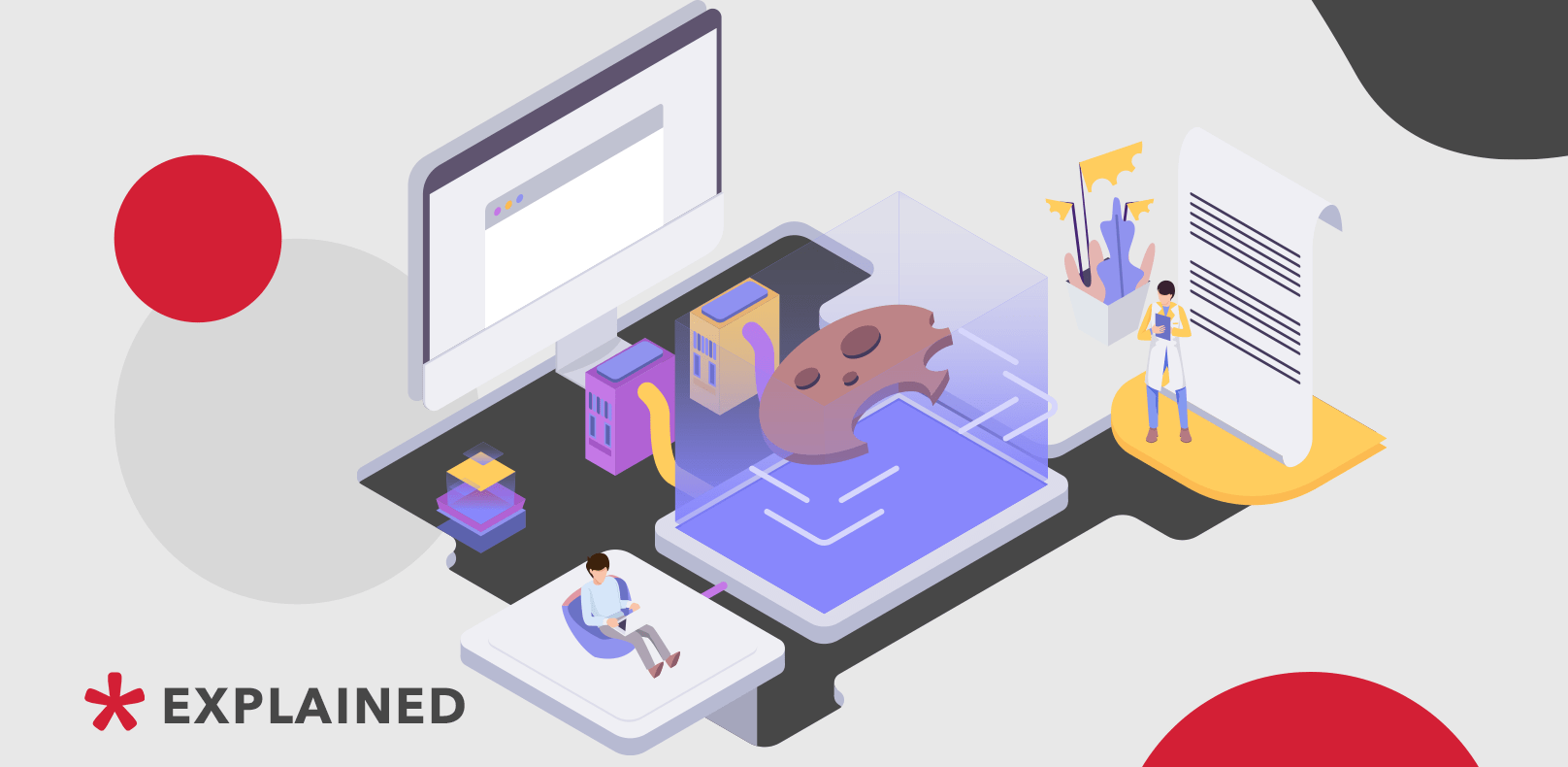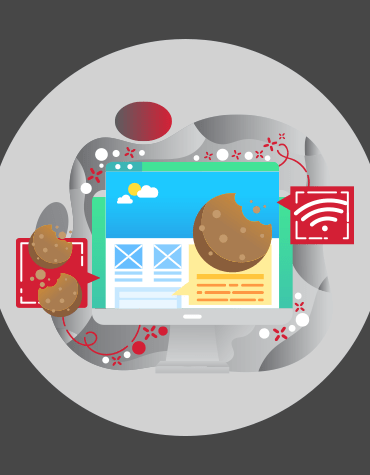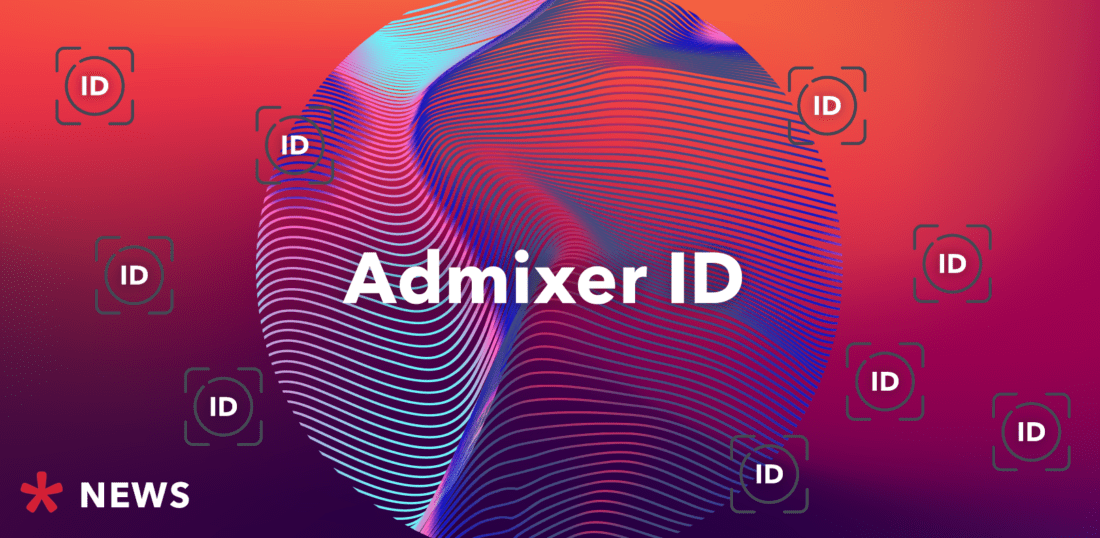
Admixer ID Goes Live: A Privacy-Forward User Identity Solution
Once Chrome and other browsers cease the support of 3rd-party cookies in 2022, 99% of open web users will become undetectable. Publishers may lose up to 70% of their revenue, while advertisers will be left without audience targeting, which will force them to reallocate advertising budgets to large platforms that collect 1st-party user data.
To sustain their revenue from monetization, publishers need to reconfigure their ad and data experiences. Less than a year is left till the changes take effect, so it’s high time to get ready.
Admixer has developed a 1st-party ID solution that will help online publishers save revenue while keeping targeting, analytics, and attribution capabilities for advertisers.
What’s Admixer ID?
Admixer ID is a unified identifier that allows you to track users across different browsers, platforms, and devices without 3rd-party cookies.
Admixer ID grants advertisers and publishers a unified system for audience segmentation, targeting, and measurement.
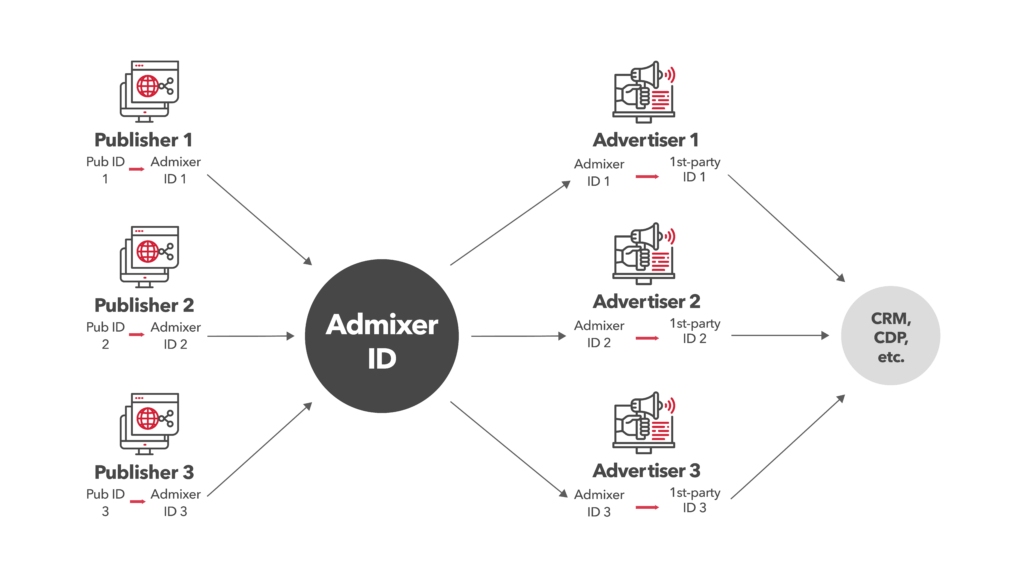
Since the Admixer representatives are part of the Rearc working group at IAB Tech Lab, the solution has been based on the user identity principles laid down by the organization.
How Admixer ID works?
Admixer ID uses hashed email addresses and phone numbers obtained with explicit user consent. It is impossible to decrypt personal data from the identifier, thus users can rest assured that their PII won’t be abused.
- A unique ID is assigned to every user of the website or app who leaves his email or phone number.
- The User ID is connected to Admixer ID.
- The ID is passed to Admixer User Graph that matches User IDs from different sources and environments:
- Web IDs (1st-party login data used to access online resources)
- Mobile IDs (IDFA for iOS and Android ID)
- Other 1st-party ID developed by different tech vendors (e.g. Unified ID 2.0, LiveRamp, ID5, Net ID, etc.)
- Verification and measurement service IDs
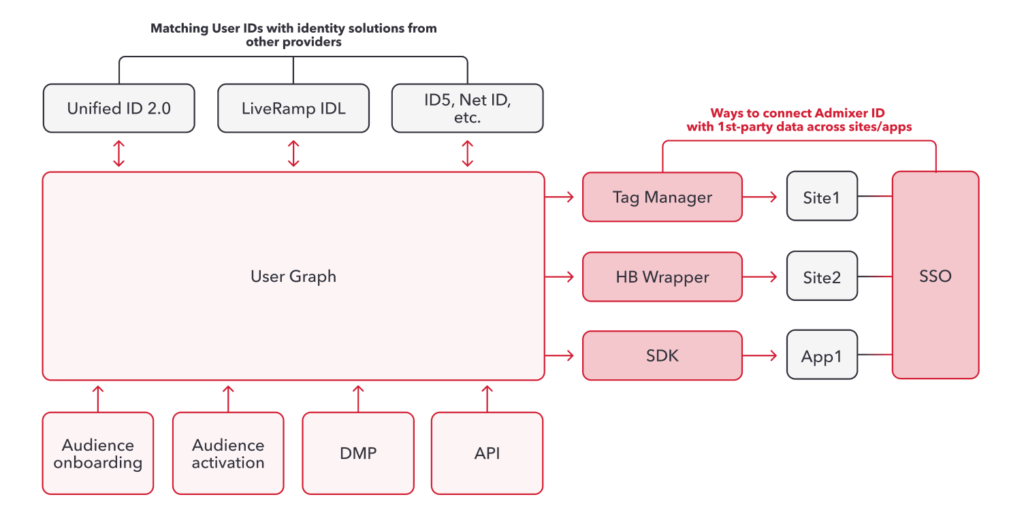
- Next, the cross-platform Admixer ID is sent to advertisers who could then activate it in ad campaigns.
- Advertisers connect users’ Admixer IDs with their own 1st-party IDs from CRM / CDP and other platforms to enhance campaign performance.
Adopting Admixer ID will help website and media owners to increase the value of their inventory for advertisers and eCPMs, as well as give them an opportunity to compete with data-rich Walled Gardens. The solution will allow advertisers to conduct cross-channel campaigns, measure, and verify reach without compromising user identity.
Benefits for advertising industry players
| Admixer ID will help publishers | Admixer ID will help advertisers |
| Increase the value of their inventory by expanding the targetable audience | Sustain accurate audience targeting and user attribution |
| Compete with large platforms that collect a lot of user data | Distinguish real users from bots by verifying user IDs across different channels and devices |
| Effectively manage 1st-party user data | Increase ad efficiency by activating 1st-party data in campaigns |
How to connect your 1st-party data with Admixer ID?
- If a website already has its own login system, then 1st-party user IDs can be connected with Admixer ID through header bidding or ad tags.
- If there is no login system, media owners can connect Admixer Single Sign-On (SSO) system. Using it, users could log in to websites with one click, while online publishers will be able to offer audiences for cross-channel targeting.
Wrap up
Admixer supports the recent privacy initiatives. We believe that digital advertising should be developed with the interests of the end-user in mind, so we’re glad that the industry is moving towards high-quality 1st-party interactions.
Admixer ID will allow users to regain control over their data. Publishers will retain their monetization revenue, while advertisers will be able to serve relevant ads to their target audience.




